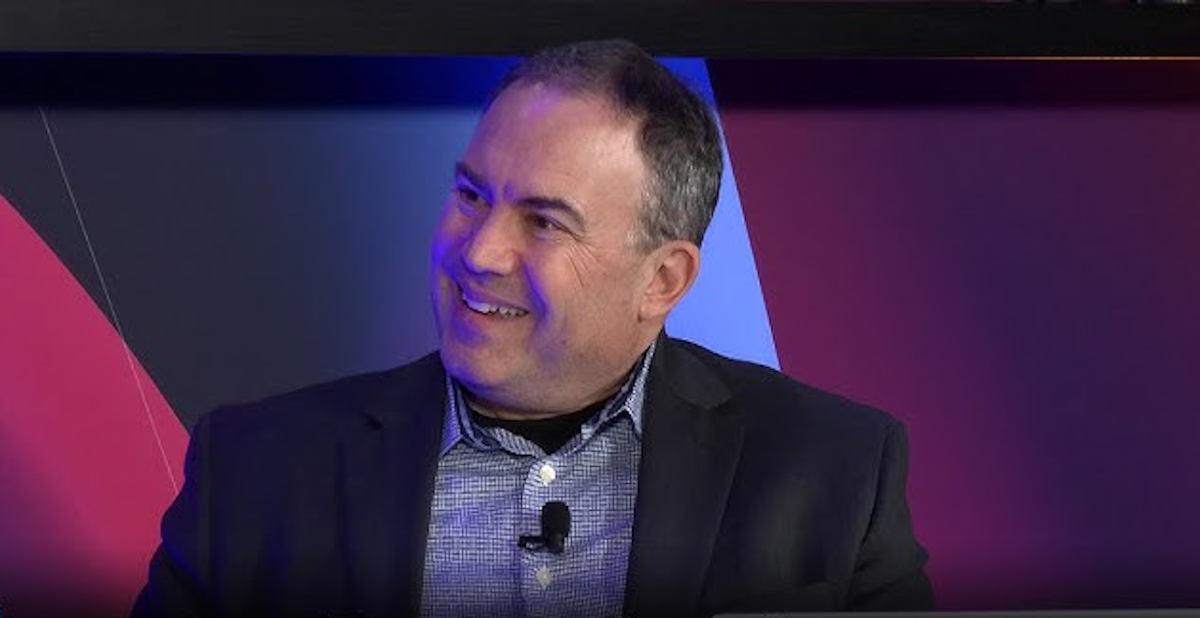
In my fifteen years working for tech startups, one area that I’ve seen some founders do exceptionally well and others do abysmally badly, is marketing. I worked for one CEO who called marketing ‘the colouring in department’ – not great for my self-esteem!
Several CEOs considered Marketing a drain on money and obviously didn’t like or trust their marketing leadership. But here are five founders I know understand the value of marketing.

Jay Chaudhry, founder of Zscaler
Jay had already founded and sold three companies before he
set up Zscaler, a leader in cloud-based cyber security. Firstly, his idea was
brilliant. All the cyber security providers were producing hardware. He had the
vision to see that cloud-based solutions were the future. Also, that employees will not be working in a physical office in the future. His entire company
has been remote- or hybrid-based since its inception in 2008. He ‘drank his own
Kool-Aid’ –a powerful marketing message.
We used to say we wanted to be ‘the salesforce of cyber security’. Our marketing messages resonated – whether it was CIO or CISO white papers discussing ‘what was keeping them up at night’ (a lot, it turned out – Chief Information Security Officers spend days and nights stressing about their company’s being hacked!).
Or setting up ‘Smash booths’ at some of the biggest cyber security events in the world – like Infosec – where we encouraged attendees to smash up our competitor’s hardware (a few raised eyebrows there – but whatever!).
In addition, he had a clear marketing strategy. He fired two CMOs who pressured him to focus on building the brand over developing lead
generation. Jay knew that at an early stage of a business, the best way to build your brand was not to spend a fortune on fancy branding. It was simply to drive new customer acquisitions.
Once you have a strong roster of clients, it is the ideal time to work on branding in the ways we usually understand – from website redesign to clarifying your brand image and tone. But when no one has even heard of you, it’s premature to harp on your ‘values’! When You are a well-established marque, like Apple, then they care.
Jay’s sales and marketing approach was unusual for a startup as we aimed to secure Enterprise customers right out of the gate. Most startups begin with smaller customers and build up to larger ones. It was a tough sell sometimes – but the approach worked; within a few years, we had many large customers like Barclays Bank, Walmart, the NHS and BMW. This was our Sales Bible at Zscaler.
Jay never skimped on marketing – he spent
generously. He upped the marketing budget in downturns because he knew this was the best time to capture new customers.
When your competitors cut back on advertising, which is cheap (during recessions), it is the best time to increase spending. Jay had a profound vision and a total belief in his company, meaning he could double down on marketing in tough times.

Brian Halligan, Co-founder (with Dharmesh Shah) of HubSpot
I got into marketing relatively late in my career. After
college, I bummed around the world for a few years doing odd jobs (including a
few interesting ones in TV and News).
Then I was in sales, then finance, and finally, in around 2008, I hit on this career I love and have stuck with. One
of the first practical marketing books I read (after the standard MBA business school
ones like ‘Data-driven marketing’), was Brian Halligans ‘Inbound Marketing’.
Brian and his co-founder, Dharmesh Shah, practically invented inbound marketing, and they’ve been ahead of every trend in my industry – right up until now, with their idea of the marketing content ‘flywheel’.
It helped that
when I started my career, I lived about five blocks from their HQ in Cambridge,
Massachusetts. So I used to bump into some of their senior executives at
restaurants like Legal Seafood, just by MIT on Kendall Square.
It also helped that I have used HubSpot as my go-to platform at
numerous successful startups. And I have utilized all their incredible free resources
– from buyer persona and A/B testing templates, to using their Hubspot Academy
to learn and get certified (it’s free unlike the super expensive salesforce
ones).
Brian Halligan has an innovative approach to inbound marketing and the ability to understand and adapt to the evolving landscape of digital marketing. Under his leadership, HubSpot developed a comprehensive
platform that integrates various marketing tools, making it a one-stop solution
for businesses looking to optimize their online presence.
Halligan’s strategic
thinking and commitment to customer-centric marketing have driven HubSpot’s
success and positioned him as a thought leader in the industry. His
forward-thinking mindset, focus on building relationships, and dedication to
staying ahead of marketing trends contribute to his reputation as a great
marketer in the business world.
You can probably tell that this company makes me feel warm, fuzzy, and inspired, just like all the other companies I’ve written about
today. You can read about a project I ran setting up HubSpot Marketing Automation and CRM for a company here.

Tan Hooi Ling, co-founder (with Anthony Tan) of Grab
Tan Hooi Ling, co-founder of Grab, showcases brilliant
marketing strategies that have contributed to the success of the
Singapore-based transportation company in Southeast Asia. Founded in 2012 as a
taxi-hailing app, Grab has expanded its services to include private car
services, motorcycle taxis, social carpooling, food delivery, and more.
Tan
Hooi Ling played a crucial role in promoting the mobile app, and under her
leadership, Grab has become a prominent player in over 500 cities and towns
across eight countries in the region.
The company’s marketing brilliance lies
in its ability to adapt to the diverse needs of customers, offering various
services such as ride-hailing, food delivery, and digital payments.
Grab’s
strategic partnerships with consumer brands, promotional offers, and unique
features like GrabFood and GrabPay contribute to customer loyalty.
Additionally, Grab’s commitment to safety, transparency, continuous
improvement, and responsiveness to government regulations and market trends
sets it apart from competitors.
The Importance of Grab’s
marketing approach, emphasizing consistency, innovation, and customer
satisfaction as vital elements in maintaining a competitive edge in the
evolving Southeast Asian market.
‘We hire for humility. We cannot believe we are better and smarter than everyone else’.
Cheryl Goh, Grab CMO
I particularly like this quote because it highlights having an attitude of ‘continuous learning’ to problems. If you read ‘Why smart executives fail‘, you’ll see that thinking that you have nothing left to learn in your business is often fatal.
I worked for one founder who was a bona fide ‘genius’. He gained a top triple major degree in Computer Science, Russian and Maths at the age of 16 and was Bain’s youngest Consultant at 18 years old (by then, he also had an MBA).
But he lacked humility. He thought he was better than everyone else and that regular rules didn’t apply to him or his business. When founders think like this and don’t accept reality, it invariably destroys their company.
Elon Musk, founder of Tesla
Some might argue that Elon Musk is the anti-marketer! He has famously said he would not promote or advertise Tesla. He has built Tesla into an almost legendary brand without spending money on advertising.
How has he accomplished such a feat? How has he built a car company worth more than all the other companies in less than 20 years? And how has he run four other companies at the same time?
Calling his drilling company ‘The Boring Company’ was a masterstroke!
Elon Musk, CEO of Tesla, SpaceX, and Neuralink, is a remarkably effective and talented marketer due to his unique ability to craft compelling narratives and communicate a grand vision that captivates the public imagination.
Musk’s adept use of social media, particularly Twitter, allows him to directly engage with a massive audience, providing updates, sharing insights, and injecting a sense of personality into his companies.
His relentless pursuit of groundbreaking technologies and audacious goals, such as colonizing Mars and revolutionizing transportation, creates an aura of innovation and excitement around his ventures.
Musk’s charismatic and visionary leadership style attracts attention and instils confidence in investors, customers, and the public, contributing significantly to the success and widespread recognition of his diverse ventures.
I have been an investor in Tesla for about five years now. In addition, I read the excellent biography of Elon Musk written by Isaac Samuelson. He also wrote an excellent bio of Steve Jobs. How can you read this book and fail to be inspired by the genius of Elon Musk?
Now that he is the wealthiest person on the planet, few people remember or appreciate how close he came to bankruptcy, and how recently that happened (in 2008).
Demons undoubtedly drive Elon, and I’m not sure I’d want to be him. However, He is undoubtedly a genius. He also understands the 80-20 principle – that 20% of your best…..will drive 80% of your results.
He laid off about 80% of Twitter, yet it still functions well (OK, some people are saying ‘Twitter is dead,’ but I disagree). He got a lot of flack for that – yet it worked.








Leave a Comment